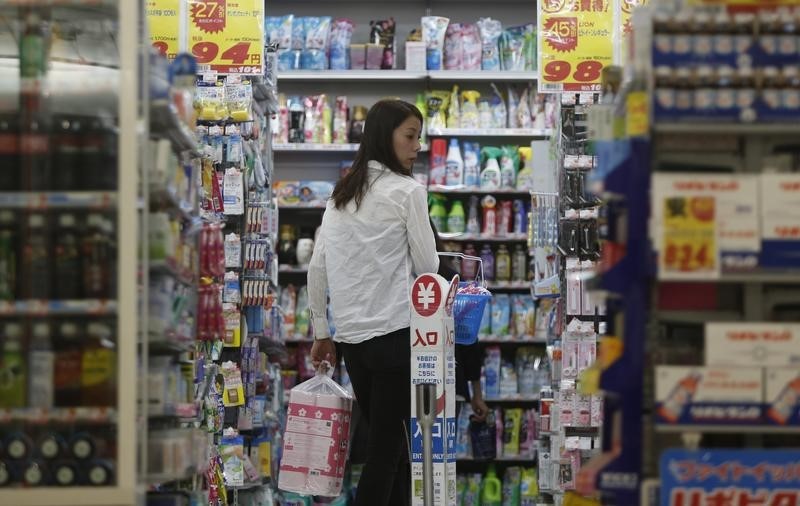By Tetsushi Kajimoto
TOKYO (Reuters) - Japan's retail sales rose for a sixth straight month in December, providing evidence of a gradual recovery in private consumption as the economy climbs out of recession.
The 0.2 percent year-on-year sales growth fell short of a 0.9 percent gain seen by economists in a Reuters poll, following a revised 0.5 percent rise in November, data by the Ministry of Economy, Trade and Industry (METI) showed on Thursday.
A recovery in private consumption, which accounts for about 60 percent of the economy, is a welcome sign for Prime Minister Shinzo Abe, who has been struggling to get the economy back on track after a sales tax hike in April hit consumer demand harder than expected.
Private consumption has languished since the government raised the sales tax hike to 8 percent from 5 percent, curbing consumers' purchasing power as broad price increase outpaced wage growth, causing steady declines in real wages.
"Year-on-year growth in retail sales eased due to effects such as falling oil prices and pre-sales-tax buying rush a year ago. Taking these factors into account, private consumption is on track for recovery," said Hiroshi Watanabe, senior economist at SMBC Nikko Securities.
"Private consumption could accelerate ahead as cheap oil prices boost consumers' purchasing power and the negative impact of the sales tax hike fades. Strength of consumption will depend on wages."
Policymakers expect consumer spending to firm up this year as the impact of the sales tax hike fades away, and they count on wages to help private consumption pick up pace.
The government and the Bank of Japan are urging Japanese companies to raise wages, which are seen as crucial for generating a sustainable growth cycle and achieving a 2 percent inflation target.
Crude oil prices below $50 a barrel are expected to give a boost to Japanese households and the broader economy in the long run as they reduce costs for resource-importing Japan, offsetting rising import costs caused by a weak yen.
But cheaper oil also compounds the challenge for the central bank in meeting its 2 percent inflation target around the coming fiscal year that begins in April, which many investors see as impossible to achieve.
Last week, the central bank sharply cut its inflation forecast, and Governor Haruhiko Kuroda conceded it may take longer than expected to hit the price target.

Compared with the previous month, seasonally-adjusted retail sales fell 0.3 percent in December, the METI data showed.